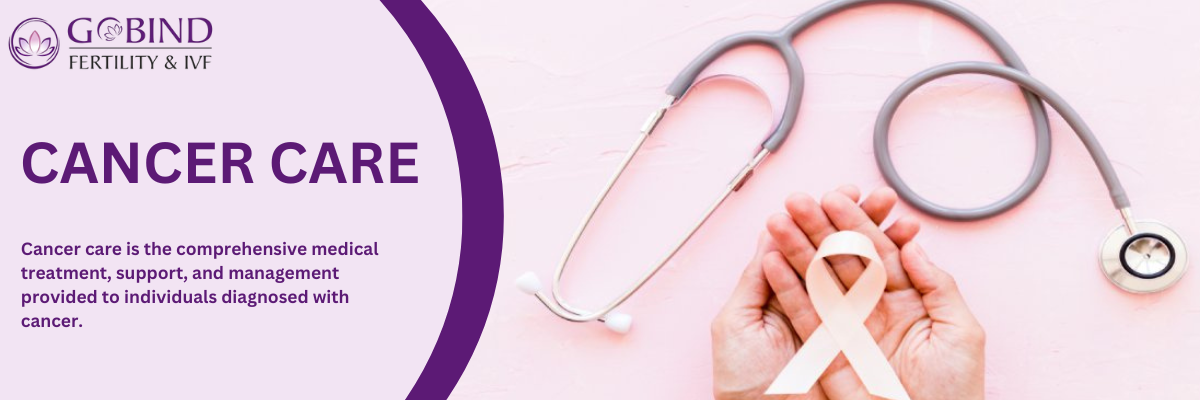

What is Cancer care?
Cancer management is the identification, treatment and also managing of persons with this diseases. This definition covers more traditional types of treatment such as surgery and use of chemotherapy, together with social supportive measures like management of pain and psychological counseling. They are usually treated by a diverse group of the healthcare team to receive quality and specialized care.
Types of Gynecologic Cancer:
• Cervical cancer begins in the cervix, which is the lower, narrow end of the uterus. (The uterus is also called the womb.)
• Ovarian cancer begins in the ovaries, which are located on each side of the uterus. Some ovarian cancers can also begin in the fallopian tubes or peritoneum.
• Uterine cancer begins in the uterus, the pear-shaped organ in a woman’s pelvis where the baby grows when she is pregnant.
• Vaginal cancer begins in the vagina, which is the hollow, tube-like channel between the bottom of the uterus and the outside of the body.
• Vulvar cancer begins in the vulva, the outer part of the female genital organs.
Each gynecologic cancer is unique, with different signs and symptoms, different risk factors (things that may increase your chance of getting a disease), and different prevention strategies. All women are at risk for gynecologic cancers, and risk increases with age. When gynecologic cancers are found early, treatment is most effective.
Note: 95% of the cervical cancer is caused by the Human papilloma-virus (HPV) Now vaccine is available to prevent from HPV infection and this can reduce incidence of cancer cervix drastically.
Screening Tests
Two screening tests can help find changes that could become precancer or cervical cancer—
• The Pap test (or Pap smear) looks for precancers, cell changes on the cervix that might become cervical cancer if they are not treated appropriately.
• The HPV test looks for the virus (human papillomavirus) that can cause these cell changes.
Both tests can be done in a doctor’s office or clinic. If you have a low income or do not have health insurance, you may be able to get free or low-cost screening tests through CDC’s National Breast and Cervical Cancer Early Detection Program.
FAQs :
1.What Are the Risk Factors for Cervical Cancer?
Almost all cervical cancers are caused by human papilloma-virus (HPV), a common virus that can be passed from one person to another during sex. There are many types of HPV. Some HPV types can cause changes on your cervix that can lead to cervical cancer over time. HPV is so common that most people get it at some time in their lives. HPV usually causes no symptoms so you can’t tell that you have it. For most people, HPV will go away on its own; however, if it does not, there is a chance that over the time it may cause cervical cancer.
2.What Are the Symptoms of Cervical Cancer?
The most common symptom of cervical cancer is post coital spotting or bleeding( bleeding after sex). Early on, cervical cancer may not cause signs and symptoms. Advanced cervical cancer may cause bleeding or fowl smelling discharge from the vagina that is not normal for you, such as bleeding after sex. If you have any of these signs, consult your doctor. They may be caused by something other than cancer, but the only way to know is to see your doctor.
3.What Can I Do to Reduce My Risk of Cervical Cancer?
The most important things you can do to help prevent cervical cancer are to get vaccinated against HPV, have regular screening tests, and go back to the doctor if your screening test results are not normal.
Note: If you are married and having girl child get her vaccinated at the age of as early as 9yrs. Old and save her from this major disease

















